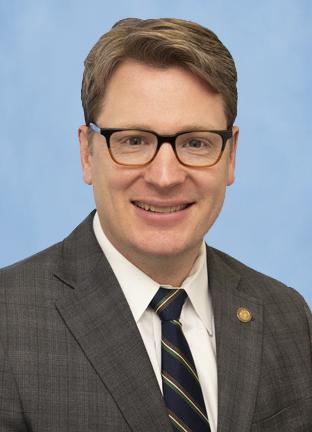January finds us nearing the end of our residency interview season. As this annual cycle comes to a close, I thought it would be a good time to reflect on the future vision of our residency education programs.
By many measures, we are excelling in our mission to train residents. Michigan surgical training programs are among the most elite in the nation. We attract the best and brightest students into our programs. Our residents go on to the best fellowships and populate the faculty of the nation’s leading academic centers. Despite this history of excellence, I believe we have room to improve.
It is time to begin forging the surgical training programs of the future. Our residents will be stepping into a world of academic surgery that is changing quickly. One that looks very different than it does now. Our residents will work in complex matrix organizations—highly consolidated regional delivery systems—which are just now beginning to take shape. To succeed, our residents will need to occupy diverse niches in an array of faculty phenotypes, some that do not exist today. To prepare them for these challenges, we need to provide our residents with a modern set of tools. What does that look like?
We already have a blueprint. Approximately three years ago, our faculty stepped up to lead several initiatives that ultimately combined to form the Michigan Promise. These initiatives were a blueprint for excellence in a modern surgical department—one that is built on the power of diverse teams and relentless faculty development. Many of the programs, as they currently exist, support resident academic development and create “spillover” opportunities for our resident trainees. However, it is time to move beyond pilot programs and translate this blueprint to our residency programs.
There are many questions we need to ask ourselves to optimally translate the principles of the Michigan Promise to our trainees:
- Achievement: If we believe diverse academic phenotypes are essential for a triple threat department, are we preparing our trainees for these different opportunities?
- Recruitment: If diverse teams are the best teams, what does this mean for how we interview and select residents?
- Environment: What spoken and unspoken challenges do our trainees have that threaten building a culture of inclusivity?
- Leadership: If residents create the culture of their teams, which is the daily reality for our junior residents and students, are we doing enough to prepare them for this responsibility?
- Innovation: If the only constant is change in health care, are we equipping our trainees with portable frameworks to be creative problem solvers?
- Outreach: What can we be doing to improve disparities in our local and global communities?
To formalize the Resident Michigan Promise portfolio of programs, I have created a new role, Vice Chair of Resident Professional Development. Gurjit Sandhu will fill this role and bring her passion for resident development, and expertise in program development and evaluation to formally implement, evaluate, and refine these programs. The goal of these programs will be to ensure that we have the infrastructure to support each trainee in achieving their unique potential. I am extremely excited to move this part of our strategic agenda forward: equipping our residents with the tools necessary to navigate and thrive in the rich landscape of the future of academic surgery. This should be our promise to them.

